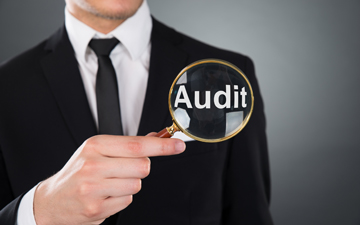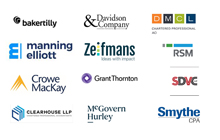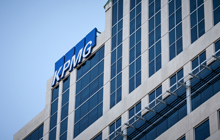IFAC report: Audit fees in Canada rise to seven-year high

Canadian audit fees trail US surge but remain far ahead of European auditors
TORONTO, April 30, 2022 – Audit fees in Canada hit a seven-year high in 2020 despite pandemic lockdowns and business restrictions, according to a new study from the International Federation of Accountants. The data, which was compiled by Audit Analytics (which also provides data to Canadian Accountant), shows that the average audit fee as a percentage of revenue rose to 0.33% in 2020 for Canadian companies listed on the Toronto Stock Exchange with average revenues of over $10 million.
The average audit fee to revenue ratio for the period from 2013 to 2020 was 0.29% with a previous high of 0.30% recorded in both 2016 and 2019. As the Big Four accounting firms audit approximately 98 per cent of all Canadian reporting issuers by market capitalization, according to the Canadian Public Accountability Board, the data would represent audit fees charged by Deloitte, EY, KPMG, and PwC in Canada.
While 2020 represents a new benchmark, a deeper dive into the statistics reveals that, for most companies listed on the Toronto Stock Exchange, real audit fees may actually be higher. The IFAC data shows that average audit fees in Ontario, where most of the head offices of large cap Canadian companies are located, were actually 0.42% (second highest in Canada next to Newfoundland).
The average Canadian number was likely decreased artificially by provinces such as Manitoba (0.09%) and Saskatchewan (0.19%), the home of Potash Corporation. With four of nine provinces reporting fewer than 10 companies audited per year, it was British Columbia that came closest to hitting the national averages in 2020 (0.34%) and in the seven year period (0.33%).
Canadian non-audit fees hold steady
The IFAC survey also reports that non-audit fees for companies with more than $10 million in revenue in 2020 held to a recent pattern. While audit related services have gradually declined over the past seven years, tax-related services have risen slightly. Other non-audit services bounced back in 2020 but are still below 2013 levels. Canada is in the middle of the pack in terms of total non-audit fees as a percentage of total audit fees when compared to Europe and the US at 25%.
Canada is the outlier in this data, with non-audit fees significantly lower than in the United States or Europe, the latter of which has very low audit fees. It is noteworthy that, the larger the company in Canada, the lower the average non-audit fee as a percentage of revenue, representing a significant cost burden to micro- and small-cap companies.
US audit fees surge in 2020
In contrast, audit fees for US companies on the Russell 3000 index with average revenues of over $10 million hit 0.44% in 2020. The average audit fee to revenue ratio from 2013 – 2020 was 0.38% in the US. These numbers are in stark contrast to European audit fees (based on six countries including the UK), where the average ratio from 2013- 2020 was 0.13%.
The surge in US audit fees was also reported by the Financial Education & Research Foundation. Using FERF numbers, the Wall Street Journal reported in 2020, that average hourly fees to external auditors climbed 31% over that decade. “New accounting standards were the primary reason respondents gave for changes in audit fees,” explained the WSJ. “In particular, finance executives cited paying additional fees for an external auditor’s assistance in complying with new revenue recognition rules, which sought to unify how companies accounted for revenue from sales and services.”
2021 audit fee data expected later this year
“The data clearly shows differences across jurisdictions and industries, while demonstrating that fees for non-audit services appear to be on a flat or declining trend,” said IFAC CEO Kevin Dancey, the former president and CEO of the Canadian Institute of Chartered Accountants. “As audit quality and reform continue to be a focus for the global accountancy profession, this data provides necessary transparency and fosters understanding about the quality, cost and value of the professional services that public practice firms provide to their clients.”
According to IFAC, this study updates an analysis first published by IFAC in 2019. IFAC also plans to update this study with fiscal year 2021 data later this year. Click here to go directly to the 2020 study, which details information about audit-related, tax-related, and other non-audit professional services in the US, Canadian, and European markets across mega-cap, large-cap, mid-cap, small-cap, and micro-cap exchange-listed companies in nine industries.
By Canadian Accountant staff.









(0) Comments